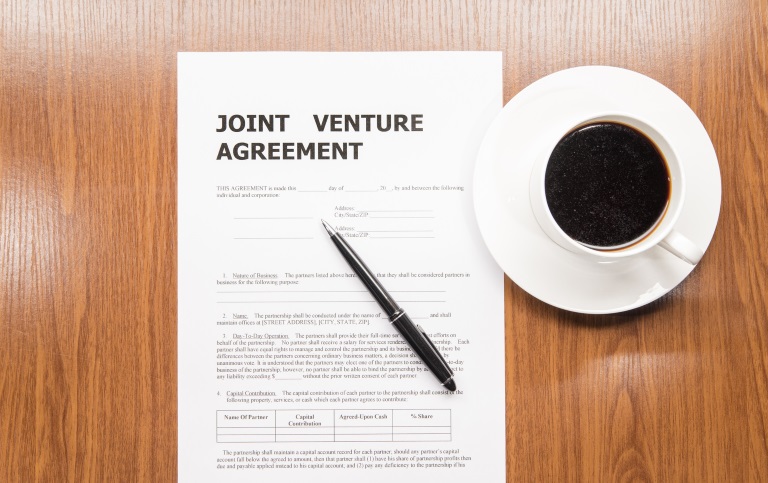Could a joint venture in Europe help your business survive Brexit?

Posted: Thu 9th Aug 2018
Buddying up with a European partner could protect your business from potential fallout from Brexit. Rebecca Burn-Callander, business journalist and author of The Daily Telegraph Business Guide to Brexit (published in summer 2019), weighs up the pros and cons of creating a joint venture.
For companies seeking to trade in the European Union, the coming divorce from the bloc still poses many unknown risks. To try and mitigate these, some business owners have decided to forge closer links with partners in Europe, which could allow them to leapfrog potential issues as they arise.
One way of doing this is to create a joint venture (JV) with a European firm. This is a lighter touch way of sharing assets in order to trade together; it falls short of a full merger or acquisition.
Instead, these are flexible arrangements whereby both parties set out a clear purpose or project - often with a set end date - each pledging to invest their assets in order to share the rewards.
In a Brexit-related case, the 'project' could be to handle the European orders for the UK firm's product or service. The EU business will help fulfil these sales in exchange for a share of the reward.
This means that if there are tariffs or duties associated with selling these things from the UK headquarters - or long delays at the border - after December 2020, when the transition period ends, you have a back-up. Your EU partner can fulfil those orders and minimise disruption and cost.
"Should Brexit be messier than we would like, a local presence in the EU would help on the ground, and even if a trade deal is reached a local presence may well help smooth over any cultural issues should the negotiations between the UK and EU become tense," comments small business adviser Carl Reader, author of The Startup Coach and The Franchising Handbook.
However, joint ventures can be complex to set up and run, not to mention expensive.
Reader explains: "For those looking to hedge their bets, a joint venture in Europe might seem to be attractive, but there are a number of matters to consider beforehand. The cost of setting up overseas companies is often higher than in the UK, and there are different logistical requirements in each EU member state.
"Share capital requirements also differ - for example, in Germany a GmbH requires EUR 25,000, with at least 50% fully paid. This is very different to the UK, in which a company can be set up for less than £20!"
You also need to be aware of the risk.
Are you sharing intellectual property with your partner? Do you trust that they will not abuse it? If there are holding stock, do they have adequate warehousing? Do you have strong channels of communication in place?
No matter how much you trust the management of the partner company, nothing can replace an iron-clad contract, so it is important to factor legal fees into your JV budget.
"It's also important to ask the question: would I be better off with a subsidiary or branch in this country instead," advises Simon Hart from audit, tax and consulting firm RSM UK. "This decision can only be made on a case by case basis.
"A subsidiary is a legal entity whereas a branch is not, which comes with different tax requirements," he explains. "The advantage of JV is that it could be much cheaper, as you don't need new infrastructure. But the downside is that with a JV, you're not directly in control. If you having a trading partner already then it may be worth having the conversation but when you relinquish control there is always a business risk."
While a JV involves sharing upside, it also has the benefit of sharing downside: if everything goes wrong, you'll share the cost with a partner.
Having a JV does not mean that you can skip the laborious process of becoming au fait with local rules and regulations either.
To avoid any nasty surprises, make sure you do your homework about the EU country your JV will be operating from.
"The potential liabilities of the JV will extend to the application of local legislation, with particular risks around areas such as employment legislation," says Reader.
"From my own personal experience, I decided against setting up a French JV for this reason, as the costs and risk of ensuring we were compliant with legislation that we didn't know outweighed the benefits at that stage."
Get business support right to your inbox
Subscribe to our newsletter to receive business tips, learn about new funding programmes, join upcoming events, take e-learning courses, and more.
Start your business journey today
Take the first step to successfully starting and growing your business.
Join for free
